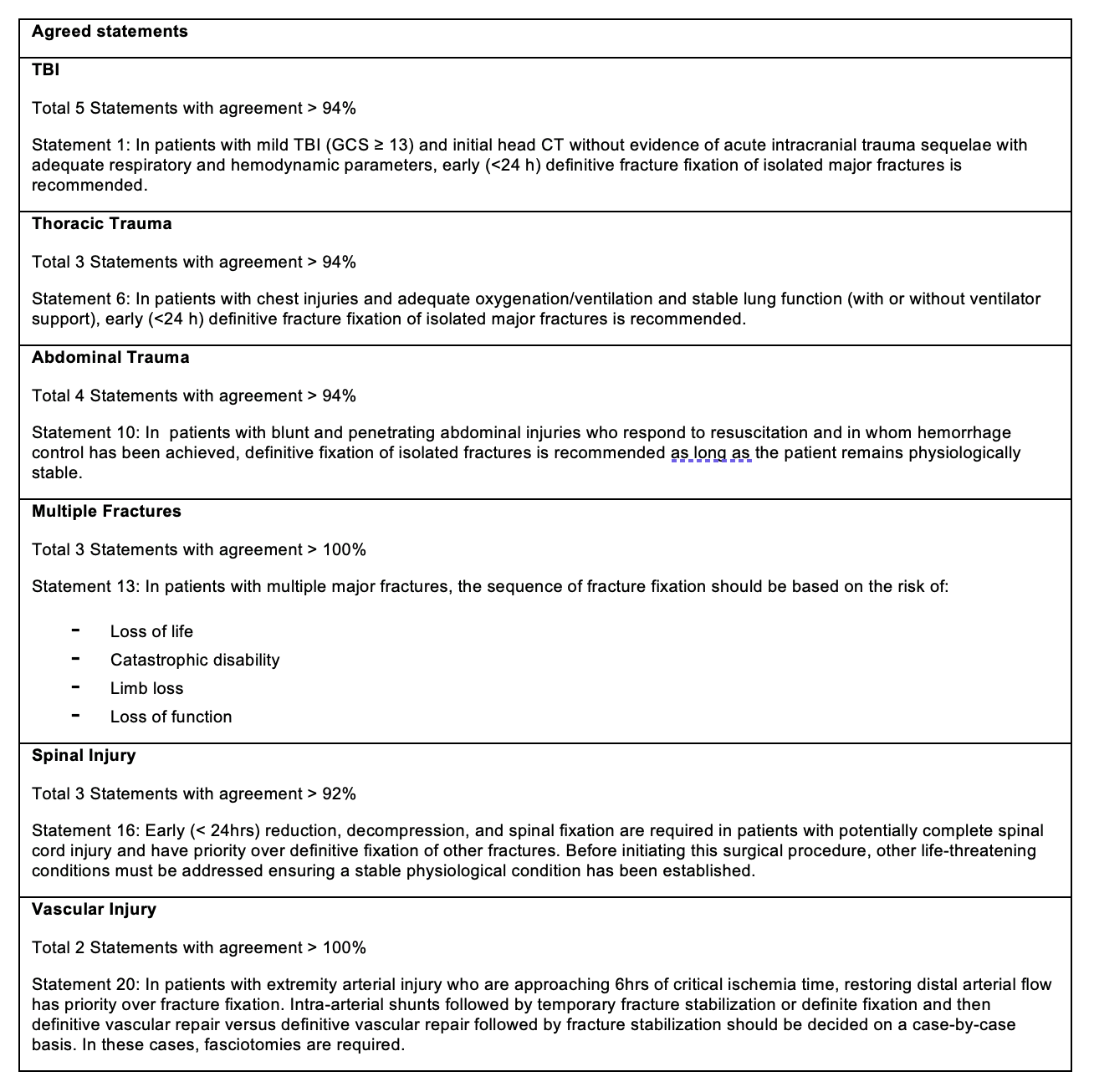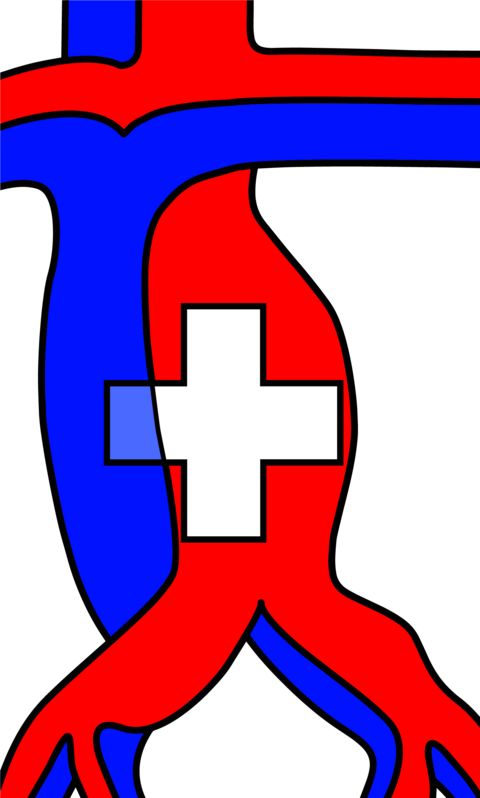Given the need for a unified approach beyond regional differences, an international multidisciplinary consensus panel met multiple times to develop recommendation through a Delphi process. This consensus focused on the timing of fracture fixation in patients with additional brain, chest, abdominal, spinal, or vascular injuries. The panel included experts from various fields, such as general surgery, trauma surgery, orthopedics, and neurosurgery.
In spring 2023, the organizing committee drafted 12 initial statements outlining when fracture fixation is appropriate for polytrauma patients with concomitant injuries. These were refined through feedback and finalized at a meeting held from September 13-14, 2023, at University Hospital Zurich. At the end of the consensus meeting, the trauma group reviewed 20 statements (Table 1) and 74 publications. Consensus was reached on all 20 statements with an agreement threshold of 75%. The result of this meeting were recently published in J Trauma Acute Care Surg. 2024 Aug 1. doi: 10.1097/TA.0000000000004428. Online ahead of print.











